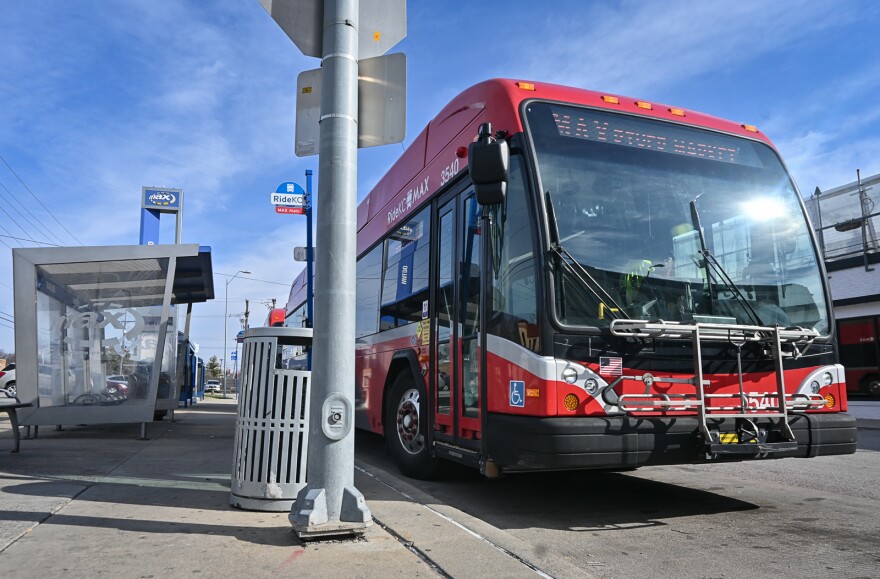Buses are still free to ride in Kansas City — for now.
But the future of the lauded zero fare program hangs in the balance, as the Kansas City Area Transportation Authority considers whether it can afford to keep rides free.
The Kansas City Council approved zero fare in 2019 and then implemented it in 2020. It only applies to bus rides within Kansas City’s limits. The KCATA used COVID relief funds to subsidize zero fare, and Kansas City agreed to allocate some funds to support the program. But the agency faces a looming deadline: COVID relief funds will be spent by 2025.
The agency has been studying the possibility of bringing back bus fares for the last few months. The Board of Commissioners received the final study on Wednesday, though it did not take any action on fare.
“We’ve made no decision to return to a farebox. We’re zero fare as we speak,” said Melissa Bynum, chair of the KCATA board.
Frank White III, CEO of the KCATA, said he’s neither for or against bringing back fare, but wants the board to pick a plan.
“This is coming. And if we want this to be sustainable, sustainable in any form or fashion, we gotta figure this out,” he said.
Bus riders and organizers with climate advocacy group Sunrise Movement KC attended Wednesday’s meeting with signs that read “Working buses for working people” and “We demand zero fare forever.”
Hanna Oliver is an organizer with Sunrise and a frequent bus rider.
“I remember when zero fare was enacted, it was one of the first times I felt like the city and the system did something that had a direct and noticeable change in my day-to-day life,” Oliver said. “And it would be a shame to lose that.”
Final Study on Fare Collection
The final fare study found that reinstating the same bus fares from 2019 — $1.50 per ride — would generate between $5.8 and $7.1 million.
The study also found that charging to ride the bus would result in a 17% to 33% decrease in bus ridership compared to 2019.
A fare implementation plan — if the agency brings fares back — will include decisions on how much to charge and how to accept money. Prior to 2020, bus riders paid with exact change. The agency can implement technology that would allow riders to pay for the bus via an app or a card. The KCATA will also consider whether to implement a free or reduced fare program for certain groups.
The study found that it would take two years to implement a new technology system to collect fares. It would cost the KCATA anywhere from $2.5 million to $6 million to institute fare collection equipment, and about 5% to 10% of passenger fare would go into maintaining the system.
Financial Impact of Zero Fare
The elimination of bus fares in Kansas City in 2020 led to a revenue hole for the KCATA, and the agency has been unable to find a long-term solution to keep funding zero fare.
Before 2020, fares made up between 7% and 12% of the agency’s budget. Between 2011 and 2014, when bus ridership was high, passenger fares brought in about $12 million annually. In 2019, the KCATA brought in $9 million in passenger fare.
When the Kansas City Council voted in 2019 to institute zero fare, Kansas City agreed to allocate additional money to the KCATA — $3.2 million in 2021 and $4.8 million in 2022. The money came from Kansas City’s half-cent sales tax that supports public transit.
Kansas City voters recently approved renewing the three-eighths cent sales tax for another decade — it’s the largest source of local revenue for the KCATA. CEO White III has previously said that money from the three-eighths cent sales tax was never meant to subsidize zero fare.






